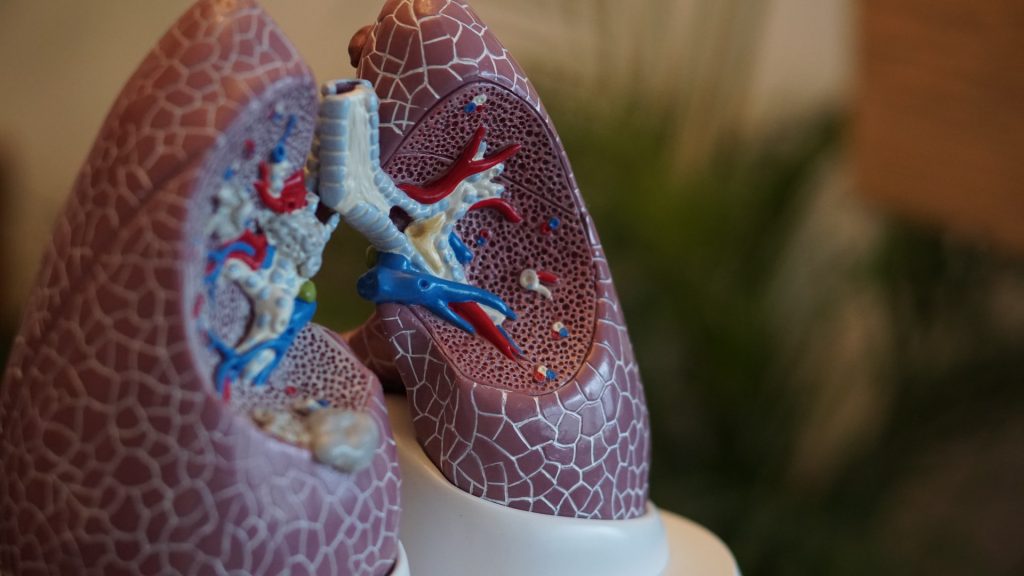
Findings from a new clinical trial published in Arthritis & Rheumatology reveal that nintedanib, an intracellular inhibitor of tyrosine kinases, may help patients with fibrosing from autoimmune disease-related interstitial lung diseases (ILDs).
ILDs are a common manifestation of systemic autoimmune diseases such as rheumatoid arthritis. Connective tissue diseases and vasculitides affect all areas of the lungs (bronchioles, parenchyma, alveoles) which is why ILD is a common feature of rheumatology diseases.
The trial enrolled 170 subjects with a fibrosing ILD other than idiopathic pulmonary fibrosis, with diffuse fibrosing lung disease of > 10% extent on high-resolution CT imagery, forced vital capacity (FVC) ≥ 45% predicted and diffusing capacity of the lungs for carbon monoxide ≥ 30% –< 80% predicted. FVC is a predictor of mortality in patients with autoimmune disease-associated ILDs.
Patients were randomised to receive nintedanib or placebo. Investigators assessed patients’ forced vital capacity (FVC). The trial found that the rate of decline in FVC over one year was -75.9 mL/year with nintedanib versus -178.6 mL/year with placebo.
“Until now, therapies that can significantly reduce the rate of decline in lung function in connective tissue disease–related ILDs characterised by progressive fibrosis have been lacking. We now have a therapeutic approach that offers a strategy for reducing the morbidity associated with these diseases,” said lead author Eric L. Matteson, MD, MPH, of the Mayo Clinic College of Medicine and Science.
Source: Wiley

